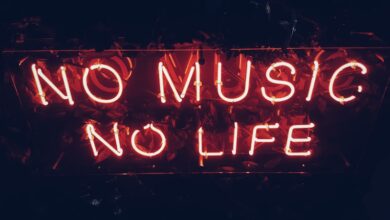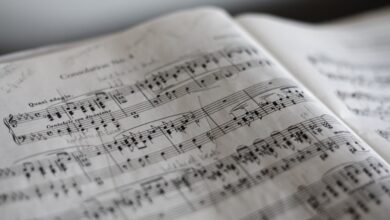Understanding the Role of Music in Political Mobilization and Protest

Article:
Have you ever wondered how music has the ability to ignite passion, unite communities, and inspire change? In the realm of politics, music plays a pivotal role in mobilizing individuals and fueling protests. Its remarkable influence can be witnessed throughout history, from rallying cries during civil rights movements to anthems that challenge oppressive regimes. In this article, we will explore the profound impact of music in political mobilization and protest.
Music possesses a unique quality that transcends language barriers, allowing it to connect with people on a deeply emotional level. It has the power to evoke feelings of solidarity, hope, and revolution. When employed strategically, music becomes a tool of expression and resistance, amplifying the voices of those who seek social justice.

One striking aspect of music’s role in political mobilization is its ability to serve as a unifying force. Regardless of cultural backgrounds or ideologies, music has the strength to bring diverse groups of individuals together under a common cause. Through shared melodies and lyrics, people find a sense of belonging and a platform to voice their concerns. This unity fosters an environment conducive to effecting real societal change.
Historically, numerous movements have harnessed the power of music to convey powerful messages and inspire action. From Bob Dylan’s iconic “Blowin’ in the Wind” during the Civil Rights Movement to N.W.A’s provocative “F**k tha Police” during the fight against police brutality, these songs became anthems that resonated deeply with disenfranchised communities. They not only captured the essence of the struggles faced but also provided a source of motivation and empowerment.
In addition to uniting people, music possesses a distinct ability to create lasting impact through its emotional resonance. It serves as a vehicle for storytelling, enabling artists to narrate the experiences of marginalized groups and shed light on hidden injustices. By infusing their songs with powerful metaphors and captivating melodies, musicians ignite a spark within their listeners, compelling them to challenge the status quo and take action.
The role of music in political mobilization and protest cannot be understated. It serves as a catalyst, igniting passion, fostering unity, and inspiring change. By harnessing the emotional power of music, individuals and communities can rally around shared values, amplify their voices, and challenge systems of oppression. As we continue on our path towards a more just society, let us remember the indomitable force that music holds—the force to transform hearts and inspire movements.
Melodies that Move Nations: Unveiling the Impact of Music in Political Mobilization and Protest
In the realm of political mobilization and protest, there exists a powerful force that transcends language barriers, cultural differences, and social boundaries: music. Melodies have an extraordinary ability to captivate hearts, stir emotions, and ignite a profound sense of unity among people. From historic revolutions to modern-day movements, the impact of music in shaping political narratives and inspiring collective action cannot be underestimated.

Music has always been a vital tool for expressing dissent and rallying support. Whether it’s the anthemic chants of civil rights activists during the 1960s or the rhythmic beats of hip-hop fueling contemporary protest movements, melodies and lyrics have become the voice of the oppressed and disenfranchised. They serve as a vehicle to articulate grievances, spotlight injustice, and call for change.
One remarkable aspect of music’s influence lies in its ability to evoke strong emotions, often bypassing rational barriers. A song can instantly transport listeners to a time of struggle, reminding them of shared experiences and reinforcing a collective identity. Just like a battle cry, a resonating melody can awaken a deep sense of purpose, empowering individuals to take action and join hands in pursuit of a common cause.

Moreover, music possesses a unique quality of universality. It speaks a language that everyone can understand, transcending linguistic limitations. Regardless of one’s background or beliefs, a melody has the potential to bridge divides and bring diverse groups together under a harmonious banner. It unites people through its sheer emotive power, serving as a catalyst for solidarity and amplifying the impact of political messages.

Think about the iconic protest songs throughout history—Bob Dylan’s “Blowin’ in the Wind” or John Lennon’s “Imagine.” These melodies still resonate today, their timeless messages echoing across generations. They remind us that music not only shapes movements but also endures as a testament to the power of human expression in the face of adversity.
In essence, music possesses an enchanting ability to move nations. It ignites passion, nurtures hope, and fuels the fires of change. Be it in the streets or within the confines of our own hearts, melodies have the potential to inspire us all to stand up, speak out, and reshape the world around us. As long as there are injustices to confront and aspirations to pursue, music will continue to serve as a transformative force, empowering individuals to mobilize and protest for a brighter future.
From Ballads to Barricades: How Music Becomes the Soundtrack of Political Movements
Music has an extraordinary power to transcend boundaries and unite people. It can evoke emotions, ignite passion, and inspire change. Throughout history, music has played a pivotal role in political movements, serving as the pulsating heartbeat that resonates with the masses. From ballads to barricades, let’s explore how music becomes the soundtrack of political movements.

Imagine standing amidst a crowd of thousands, your heart pounding in sync with the rhythm of a protest anthem. The lyrics pierce through the air, carrying messages of hope, resilience, and the desire for justice. These songs serve as anthems, rallying cries that empower individuals, fueling their determination to fight for what they believe in.
Music has an uncanny ability to capture the spirit of a movement. It acts as a unifying force, bringing together diverse groups of people who share a common goal. Whether it’s folk ballads sung around campfires during the Civil Rights Movement or punk rock anthems blaring from speakers at anti-war protests, music creates an atmosphere of solidarity. It ignites a sense of belonging and strengthens the bonds between individuals, fortifying their resolve in the face of adversity.
The impact of music goes beyond mere entertainment; it shapes the narrative of a movement. Consider iconic songs like Bob Dylan’s “Blowin’ in the Wind” or John Lennon’s “Imagine.” These timeless classics captivated audiences with their profound lyrics and melodies, serving as powerful tools for social commentary. They became the soundtracks of their respective eras, encapsulating the hopes, dreams, and frustrations of millions.
Moreover, music serves as a catalyst for change by spreading awareness and mobilizing action. It has the ability to reach vast audiences, transcending language and cultural barriers. In today’s digital age, a protest song can go viral within minutes, capturing the attention of millions across the globe. It sparks conversations, ignites debates, and encourages individuals to take a stand.
Music has an extraordinary ability to shape and define political movements. It provides a voice to the voiceless, amplifying their messages and aspirations. From the heartfelt ballads of the past to the anthems of today, music continues to inspire, empower, and unite. It intertwines with the fabric of social change, leaving an indelible mark on history. So, the next time you witness a protest or find yourself immersed in a political movement, listen closely. You might just hear the soundtrack of change being sung from ballads to barricades.
Harmony in Dissent: The Powerful Role of Music in Shaping Political Protests
Introduction:
Did you know that music has the remarkable ability to ignite social change? Throughout history, music has served as a powerful tool for expressing dissent and shaping political protests. From revolutionaries singing folk songs to modern-day activists chanting anthems, the harmonies of protest have resonated through generations, captivating hearts and minds. In this article, we will explore how music has played a pivotal role in inspiring and galvanizing political movements worldwide.
The Soundtrack of Revolution:
When we think of iconic political protests, certain melodies immediately come to mind. Bob Dylan’s stirring ballads during the civil rights movement, or the uplifting rhythms of “Bella Ciao” echoing through the streets of Italy, remind us of the indelible impact that music can have on collective consciousness. These songs become anthems of hope, unity, and resilience, uniting people from diverse backgrounds under a common cause.
The Language of Empathy:
Music possesses a unique language that transcends barriers of nationality, culture, and even language itself. It possesses the power to evoke profound emotional responses, allowing individuals to connect with one another on a deeply human level. Through melodies and lyrics, music carries messages of solidarity, justice, and freedom, amplifying voices that might otherwise go unheard. It speaks directly to the heart, inspiring empathy and fostering a sense of community among protesters.
The Rhythm of Resistance:
In the heat of a protest, the rhythm of drums, the strumming of guitars, and the chants of the crowd merge into a powerful symphony of dissent. These beats create a cohesive energy, infusing protests with passion and determination. They provide a shared expression of frustration, anger, and resilience, invigorating participants and encouraging them to persevere against adversity. Just as a conductor leads an orchestra, music unites protesters in a harmonious chorus, amplifying their collective voice.
Music as a Catalyst for Change:
Beyond its immediate impact during protests, music has the ability to transcend time, leaving an indelible mark on society. Iconic protest songs become timeless symbols of resistance, continuing to inspire future generations long after the demonstrations have ended. They serve as a reminder of the power of unity and the capacity of music to bring about meaningful social change.
Conclusion:
In the intricate tapestry of political protests, music weaves a powerful thread that connects hearts, minds, and voices. It fuels the flames of passion, unites diverse communities, and propels movements forward. From the anthems of the past to the melodies yet to be written, music continues to shape the course of history, reminding us that even in dissent, harmony can be found.
Revolutionary Rhythms: Exploring the Historical Influence of Music on Political Mobilization
Introduction:
Have you ever wondered how music has played a pivotal role in shaping political movements throughout history? From anthems that unite nations to protest songs that ignite revolutions, the power of music to mobilize people and convey powerful messages is undeniable. In this article, we delve into the fascinating world of music’s historical influence on political mobilization, examining its revolutionary rhythms that have ignited change across diverse cultures and societies.
The Power of Melody and Lyrics:
Music possesses a unique ability to transcend language barriers and connect with individuals on a profound emotional level. Through captivating melodies and thought-provoking lyrics, musicians have inspired masses, conveyed shared aspirations, and galvanized collective action. Take, for instance, the iconic civil rights movement in the United States, where songs like “We Shall Overcome” became anthems of hope, empowering disenfranchised communities to stand up against injustice.
Unleashing Cultural Identity:
Music serves as an expression of cultural identity, channeling the experiences and struggles of a community through melodious harmonies. It has been a driving force behind various liberation movements worldwide. Consider the role of Afrobeat in Nigeria during the 1970s, as Fela Kuti used his music to criticize the corrupt government, shedding light on social issues and demanding accountability. His music united Nigerians, fostering a sense of pride and purpose, propelling them towards political change.
The Art of Protest:
Protest songs have always been catalysts for societal transformation. They inspire reflection, challenge the status quo, and motivate people to take action. Bob Dylan’s timeless ballad “Blowin’ in the Wind” not only became synonymous with the anti-war movement of the 1960s but also questioned society’s values and called for introspection. This song, along with countless others, captured the spirit of dissent, providing a voice for the voiceless.
Beyond Borders and Boundaries:
The impact of music on political mobilization extends far beyond national borders. It has been instrumental in toppling oppressive regimes, such as the role of music during the Arab Spring uprisings. From Tahrir Square in Egypt to the streets of Tunisia, songs became powerful tools in unifying diverse communities, fueling their determination for change and inspiring global solidarity.
Conclusion:




